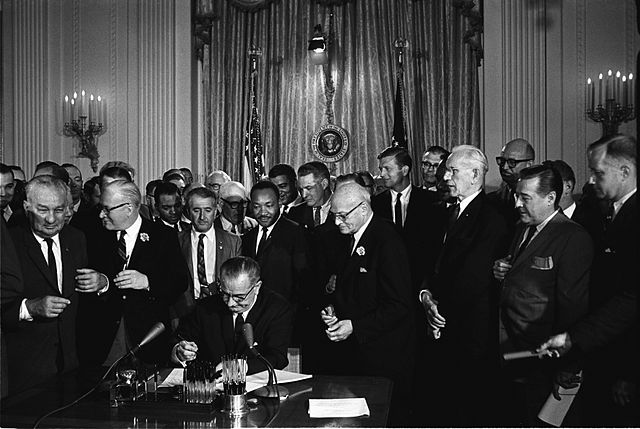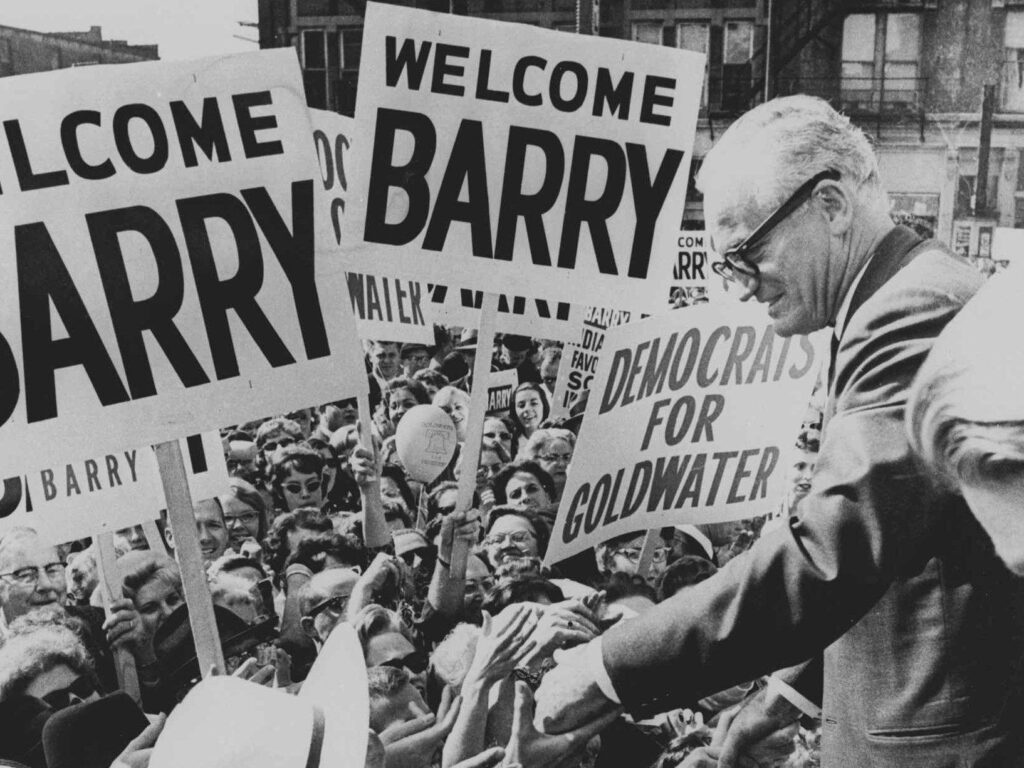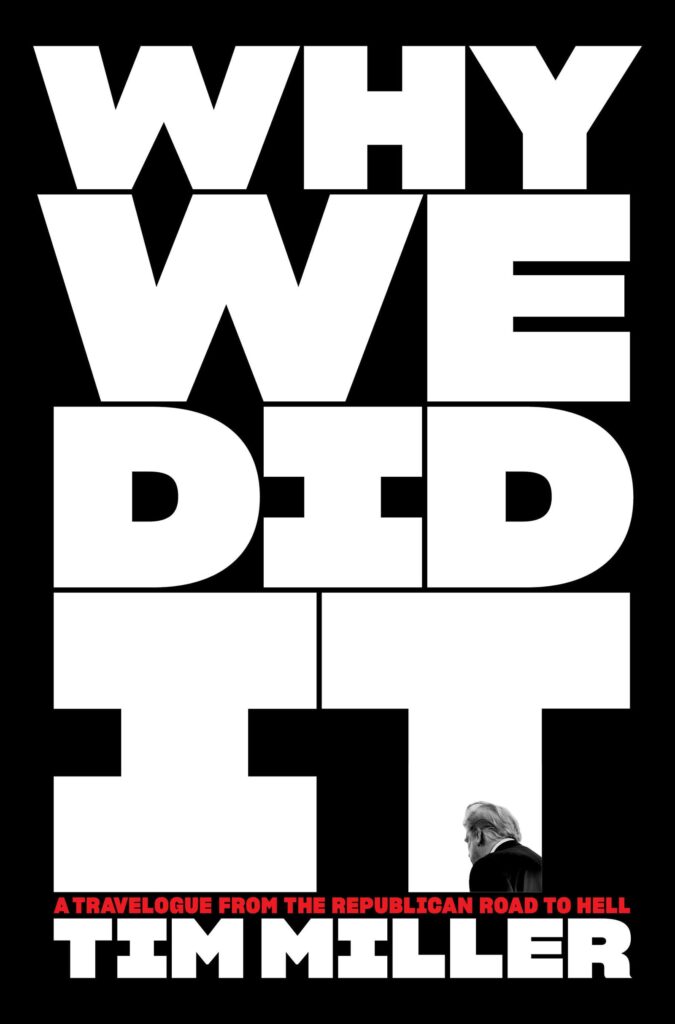To understand the United States in 2022 you must understand the United States in 1964.
The country has many origin stories, the point from which you might glimpse the country we have become – the Declaration of Independence, Lincoln’s election in 1860, the end of Reconstruction and the rise of Jim Crow, the Great Depression, the Good War.
All those moments are woven into the fabric of our big, diverse, increasingly contentious and perhaps ungovernable nation. Not many of us would peg 1964 an origin moment. It was.

Consider for a moment this pivotal 365 days, the year the writer Jon Margolis, not altogether cynically, termed in his book of the same name – “The Last Innocent Year.”
“There was a time,” Margolis wrote, “when the delusion of innocence was easy to believe, when the myth was at least as useful as it was deceiving. That time ended when 1964 did.”
John Kennedy, a deeply flawed but profoundly inspiring president was dead as 1964 dawned, shot down the previous November in Dallas, the epicenter of the radical right in the 1960s. The John Birchers considered Dallas a stronghold and local members organized a demonstration against the United Nations, and particularly UN ambassador Adlai Stevenson, a two-time presidential nominee. Things became so unruly Stevenson was hit in the head with a sign post.
The major newspaper in Dallas was stridently anti-communist, and anti-Kennedy. Ted Dealey, the publisher of the Morning News, famously told Kennedy to his face at a White House luncheon, “we need a man on horseback to lead this nation, and many people in Texas and the Southwest think that you are riding Caroline’s tricycle.”
When Kennedy was gunned down in Dealey Plaza – yes, named for that publisher’s father – not everyone was surprised that Dallas is where it happened. Somehow, in our age of conspiracy, it seems all too fitting that JFK’s murder in the Big D spawned a million crackpot conspiracy theories. It is also no coincidence that Texas with its school room murders, unconcealed cruelty to women and immigrants and divisive ultra-right politicians looms so large in our politics nearly 60 years later.
The Kennedy murder also gave the country a big, often crude, often eloquent Texan as president.
“In retrospect,” Jon Margolis wrote, “we can see that it was the opening days of his presidency that Lyndon Johnson took the steps that would cost him his job four years later; that rioting in city streets first began in 1964; that the anger of middle-class working people, whom Richard Nixon would later call the ‘silent majority,’ revealed itself in the first stirrings of ‘white backlash’ and in the distaste for cultural elites exploited by the Goldwater movement.”
Barry Goldwater doesn’t instantly spring to mind for most Americans as a defining character in the troubled country we now inhabit. But Goldwater is a defining character, and indeed the most consequential loser in American political history. He roared into our history in 1964 and never left.

Goldwater lost the presidency in a landslide that year to Lyndon Johnson, but in losing he nailed in place the foundation of the angry, grievance driven, conspiracy embracing modern conservative movement. Goldwater also accomplished what moderate Dwight Eisenhower, a Republican never invoked by today’s Trumpified conservative party, began – the American South’s turn to the GOP.
Goldwater won only six states in 1964, but he defeated Johnson, a southerner, in five states of the old Confederacy. In Mississippi, just to cite the most astounding number from that election, Goldwater won 87% of the vote. This was before Congress passed the Voting Rights Act – that happened in 1965 – and before that law most Black Americans couldn’t register to vote in Mississippi. The white voters who embraced Goldwater knew well that the Arizona senator had voted NO on the Civil Rights Act approved by Congress in the summer of 1964 after the longest filibuster in Senate history. It became his calling card.
That Goldwater opposed civil rights legislation, campaigned to eliminate the Tennessee Valley Authority, decried America’s moral decay and was comfortable among Birchers and Southerners waving Confederate flags recommended him highly to many white Americans. He became the face of opposition to “liberal overreach” across the South and beyond.
If you don’t hear echoes of all this today, you’re not listening.
As Goldwater pressed his campaign against Johnson in 1964, his messages were all about “communist infiltration,” the lying liberal, elitist press, pointy-headed college professors, traitors in high places, the dangers of a runaway federal government hell-bent on destroying American freedoms, the “phony” policies of the Democrats.
A Republican state legislator in Ohio or Idaho or Tennessee could give that speech today, indeed they are giving that speech.
Reporter Richard Rovere wrote about Goldwater’s campaign tour in the fall of 1964 for The New Yorker.
“It has been my lot to attend political gatherings of many sorts for many years, but never until I went South with Goldwater had I heard any large number of Americans boo and hoot at the mention of the name of the President of the United States. In Alabama and Louisiana, there were thunderous, stadium-filling boos, all of them cued by a United States senator.”
Contemporary conservative rhetoric is always derivative. Goldwater owed much to Joe McCarthy. Nixon refined the right’s appeal to middle America, dog whistling to the silent, angry majority and appropriating the rest of the South. Reagan proved to be a smoother, more likable version of Goldwater, while hitting the same notes.
Trump, the malicious narcissist, cares not at all for history, but he thinks he knows what works: the meanness of a McCarthy, the white grievance appeal of a Goldwater, the “law and order” and the enemies lists of a Nixon and the Big Top showmanship of a president from Hollywood.
But Barry is his true godfather.
“I have never seen as grim and uncomprehending a group of politicians as those West Virginia Republicans who sat on the platform with Goldwater in Charleston,” Rovere wrote in 1964. “They joined in two bursts of applause – once when he mentioned the Ten Commandments, and again when he said, ‘We will not convert the heathen by losing our own souls.’”
It has always been about a fight for the soul of America. It is who we are, and 1964 helped create what we are living with.
—–0—–
Additional Reading:
For your consideration …
There Are 11 Types of Donald Trump Enablers. Which One Are You?

Tim Miller, a one-time consultant to conservative politicians and causes turned Never Trumper, has published what is sure to become a wildly popular new book.
Miller writes very well and he isn’t pulling a punch. He suggests there are 11 types of Trump rear end sniffers … you won’t be disappointed.
Miller divide them into these buckets:
• Messiahs and Junior Messiahs
• Demonizers
• LOL Nothing Matters Republicans
• Tribalist Trolls
• Strivers
• Little Mixes
• Peter Principle Disprovers
• Nerd Revengers
• The Inert Team Players
• The Compartmentalizers
• Cartel Cashers
As Miller says, “Here’s a field guide, my taxonomy of enablers, so you can identify them in the wild.”
Dangerous as the Plague
From the Baffler.
“For those of us who grew up in the gauzy days of ‘Love Wins,’ recent months have been profoundly unsettling. For the first time in our lives, history seems to be running in reverse. Yet while this rhetoric may seem frighteningly new, it has a long, miserable history that stretches back to the nineteenth century and the very origins of LGBTQ rights.”
As my piece this week suggests all that you are seeing has been with us before.
‘A massive betrayal’: how London’s Olympic legacy was sold out
The rich get richer … the massive fail of the London games.
“Ten years on from the patriotic pageant that brought the nation together to bask in director Danny Boyle’s opening ceremony, with its pastoral vision of merrie England and cavorting NHS nurses, just 13,000 homes have been built on and around the Olympic site. Of these, only 11% are genuinely affordable to people on average local incomes. Meanwhile, in the four boroughs the site straddles – Newham, Tower Hamlets, Hackney and Waltham Forest – there are almost 75,000 households on the waiting list for council housing, many living in desperate poverty. Thousands of former residents have also been rehoused outside the area since the Olympics took place.”
The Guardian with the gory details of the shoddy legacy of a big, big money event.
Boris Johnson resigns: Five things that led to the PM’s downfall

The British PM is out after lies, fines for violating his own Covid rules, more lies and a few lies.
The BBC has an analysis of the why now? I feel compelled to add that nothing Johnson did, as bad as it was, comes close to matching the four years of Donald Trump. Nothing.
And as many have pointed out he didn’t ask his supporters to sack Westminster.
Thanks for reading. Be well.
